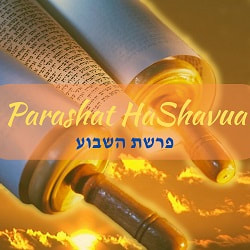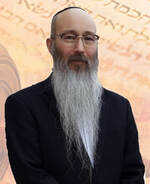THE ISRAEL FOUNDATION
|
By: HaRav Menashe Sasson Reporting from Jerusalem, Israel Published in the U.S.A. Israeli media reported that on 14 Adar II 5782 (Thursday, March 17, 2022), two dolls portraying Israeli police officers were hanged in effigy in the Beit Shemesh neighborhood of Jerusalem and that in a separate protest, a picture of the mayor of Jerusalem was “hanged” in the Jerusalem neighborhood of Mea Shearim. Israeli police disbursed the protesters and made several arrests. Although it was reported that the Mea Shearim protest was in opposition to the proposed installation of a new light rail train line through that neighborhood, the Israeli media, as is typical in more controversial matters, was diligent in failing to report the motivation for, or purpose of, the Beit Shemesh protest. Politically-motivated protests are, of course, common, not only in Israel, but in other countries as well. The State of Israel, however, unlike countries that recognize and accept that free speech is not a right which is granted by government but, rather, is a fundamental human right which exists notwithstanding government, has a long and sordid history of infringing that right. For example, the State of Israel has banned certain candidates/parties from seeking election to the Knesset (Parliament), on the ground that their political platform is such that it constitutes an “incitement to racism.” Although most would agree that “racism” is unacceptable, the fact remains that, as the saying goes, “the devil is in the details.” In other words, the definition of “racism” is often fluid, and is defined only as being that position which is held by one’s political opponents. Indeed, many who oppose the Torah do so, at least in part, by claiming – falsely – that many provisions of the Torah are “racist.” Compounding the nefarious nature of a law which makes “incitement to racism” a ground for disqualifying one’s political opponents from running for office is that the law is comingled with other provisions of law which – legitimately – prohibit those who seek the overthrow of the government from running for political office.
Section 7A of Basic Law: The Knesset In the aftermath of another protest, this one having occurred in Beit Shemesh on 30 Kislev 5772 (December 26, 2011), Member of the Knesset (MK) Nachman Shai reportedly submitted to the Knesset a bill that would make “publicizing, inciting, preaching or encouraging gender segregation in the public sphere” a criminal act punishable by three years in prison.” In other words, MK Shai did not seek to criminalize harmful conduct; he sought to criminalize speech. The Talmud famously records an incident regarding Rabbi Eliezer and a debate about whether a vessel called the “Oven of Aknai” could become ritually unclean:
T.B., Masekhet Bava Metzia 59b. Thus, as we see, Jewish Law (Halakha), as should the State of Israel, protects the right of free speech and dissent. Not only was it permissible for Rabbi Eliezer to take a position which was counter to that of the Rabbis; it was also permissible for the Rabbis, in turn, to take a position which challenged The Holy One, Blessed be He. Thus, if it is permissible for Rabbi Eliezar to challenge the Rabbis, and for the Rabbis, in turn, to challenge the Almighty, surely it is appropriate for the Jewish people to challenge the workings of its secular government in the State of Israel. In its Declaration of Independence, signed on 6th Iyar 5708 (May 15, 1948), the State of Israel declared that it would adopt a constitution no later than October 1, 1948. However, as often happens, reality got in the way of good intentions and, due in part to having to fight a war of independence, no constitution was adopted, either by May 15, 1948, or at anytime thereafter. Instead, a document known as the Harari Proposal, was adopted by the Knesset. The Harari Proposal provides for the adoption of so-called “Basic Laws” which, although not a constitution in any real sense, are nevertheless labeled as such under Israeli law. Israel’s Basic Laws, although having created a façade of democracy and respect for civil rights (including free speech), have failed to secure for the Jewish people a true system of democracy and freedom. As the distinguished and highly-respected Richard Posner, an American-born Jew whose parents immigrated to the United State from Eastern Europe, and who is also a U.S. appellate judge, once wrote, “Israel is an immature democracy, poorly governed; its political class is mediocre and corrupt; it floats precariously in a lethally hostile Muslim sea; and it really could use a constitution.” Richard Posner, Enlightened Despot (April 22, 2007). Judge Posner is, of course, correct. The State of Israel “could use a constitution.” And as the saying goes, “there is no time like the present” for Israel to convene a constitutional convention – which should be wholly independent from the current system of government – for that purpose. As a 20th century Jewish economist once said, “Liberty is meaningless if it is only the liberty to agree with those in power.” Ludwig von Mises. Copyright © The Israel Foundation. All Rights Reserved.
0 Comments
Your comment will be posted after it is approved.
Leave a Reply. |




